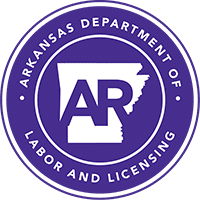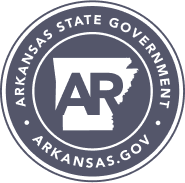Board Information
Board Information
What is the Board?
The Arkansas State Board of Architects, Landscape Architects, and Interior Designers (ASBALAID) is a multi-profession regulatory agency that oversees the examination, registration, and professional regulation of architects, landscape architects, and interior designers. The Arkansas Legislature created the original Arkansas Architectural Act and the Arkansas State Board of Architects in 1941 via Act 270. On July 1, 2009, the Arkansas State Board of Architects merged with the Arkansas State Board of Landscape Architects and Arkansas State Board of Registered Interior Designers.
The activities of ASBALAID benefit the public in two critical ways.
First, regulation protects the public at large. The primary responsibility of any architect, landscape architect, or registered interior designer is to design environments that are safe, durable, functional, satisfy reasonable environmental standards, and contribute esthetically to the surrounding community. To accomplish this, the design professional must satisfy the applicable requirements of law and demonstrate the correct application of skills and knowledge. It must be emphasized that the results of faulty design may be injurious not only to the person who engages the design professional but also to the third parties who inhabit or use the environment.
Second, regulation protects consumers from fraudulent services rendered by design professionals. The necessity for ensuring that those who hire architects, landscape architects, and registered interior designers are protected from incompetent or dishonest individuals is self-evident.
Mission
The mission of the ASBALAID is to protect public health, safety, and welfare through the regulation of architects, landscape architects, and registered interior designers in the state of Arkansas by the following:
- Ensuring that those representing themselves as architects, landscape architects, and registered interior designers meet standards of competency by way of education, experience, and examination;
- Establishing standards of practice for those licensed to practice;
- Requiring that any person practicing or offering to practice as an architect, landscape architect, or registered interior designer is licensed;
- Protecting consumers and users of design services;
- Enforcing the laws, codes, and standards governing license holders in a fair, expeditious, and uniform manner; and
- Empowering consumers by providing information and educational materials to help them make informed decisions.
Vision
ASBALAID will play a major role in ensuring that architects, landscape architects, and registered interior designers provide the highest quality professional services.
- Arkansas architects, landscape architects, and registered interior designers will possess the knowledge, skills, and abilities necessary to meet the expectations of clients and consumers.
- Arkansas architects, landscape architects, and registered interior designers will be competent in all areas of practice and will adhere to high standards of technical competency and professional conduct.
- Exam candidates will have access to the necessary education and training opportunities.
- Consumers will have access to an adequate supply of architects, landscape architects, and registered interior designers and will have the information they need to make informed choices.
Values
ASBALAID will strive for the highest possible quality throughout all of its programs, making it an exceptionally effective and efficient multi-profession regulatory agency.
To that end, ASBALAID will:
- Be participatory through continuing involvement with NCARB, CLARB, NDICQ, and other organizations;
- Be professional by treating all persons who interact with ASBALAID as valued customers;
- Focus on prevention by providing information and education to consumers, candidates, clients, licensees, and others;
- Be progressive by utilizing the most advanced means for providing services; and
- Be proactive by exercising leadership among consumer protection and professional practice groups.

